
Psoriasis is a chronic (long-lasting) skin condition that causes cells to build up rapidly on the skin’s surface, leading to thick, scaly patches, redness, and inflammation. It's an autoimmune disease, meaning the immune system mistakenly attacks healthy skin cells.
Psoriasis is not contagious. It commonly affects areas such as the scalp, elbows, knees, and lower back. The condition tends to come and go in cycles, with periods of flare-ups followed by times of improvement. Triggers that may worsen psoriasis include stress, infections, cold weather, injuries to the skin, and certain medications.
Some people call it “skin allergy,” “rash problem,” or just “itchy skin disease.” These are common terms patients and families may use when asking for help. However, psoriasis is not just a skin issue; it is a long-term autoimmune disease.
The meaning of Psoriasis in Bengali is ‘chormorog’- skin disease or as ‘chamrar rog - disease of the skin.
People need treatment for psoriasis to reduce itching, control flare-ups, and protect their skin. Psoriasis is a long-term disease that affects the skin and sometimes the joints. It can cause pain, discomfort, and even emotional stress. Early treatment helps manage the condition and improve quality of life.
Psoriasis happens when the immune system overreacts and makes skin cells grow too fast. This leads to thick, scaly patches on the skin. While the exact cause is not fully known, some triggers and risk factors have been identified.
Here are the most common causes and triggers:
Psoriasis symptoms can vary depending on the type and severity, but the most common signs include:
These symptoms usually appear on the scalp, elbows, knees, lower back, and nails, but they can show up anywhere on the body.
Psoriasis leads to the appearance of distinct patches on the skin, which are often red, inflamed, and covered with silvery-white scales. The pictures of psoriasis clearly show these common symptoms. These patches can vary in size, ranging from small spots to large areas of the body. The appearance of psoriasis can differ based on the type and severity of the condition.
Types of Psoriasis Appearance:
A few pictures of Psoriasis are:


The images and descriptions provided are for general educational purposes only. Psoriasis symptoms and appearance can vary for each individual. Always consult a qualified dermatologist for an accurate diagnosis and personalised treatment.
Symptoms of psoriasis should lead to treatment as soon as they appear. Psoriasis is a long-term condition, and early treatment helps control flare-ups and prevent skin damage. Ignoring the signs can make the condition worse and harder to manage.
Doctors may start treatment after:
There is no permanent cure for psoriasis, but the symptoms can be controlled and reduced with proper care. Treatment helps to clear the skin, ease discomfort, and prevent flare-ups.
Here are the most effective ways to manage psoriasis:
1. Topical treatments
Used for mild to moderate psoriasis. These are applied directly to the skin.
2. Phototherapy (Light therapy)
Used for moderate to severe psoriasis.
3. Oral or injectable medications (Systemic treatment)
Used when psoriasis is severe or doesn't improve with creams.
4. Home care and lifestyle changes
5. Regular follow-up with a dermatologist
The treatments and lifestyle tips listed are for general informational purposes only. Psoriasis varies for each individual, and only a qualified dermatologist can recommend the most suitable treatment plan.
Recent advances in psoriasis treatment focus on more targeted approaches, aiming to improve effectiveness while reducing side effects. These new therapies are especially beneficial for people with moderate to severe psoriasis.
1. Biologic Treatments (Targeted Immune Therapy)
Biologics are advanced treatments that target specific immune system proteins responsible for the inflammation and rapid skin cell turnover seen in psoriasis. These treatments are typically given as injections and help control symptoms for extended periods.
2. Oral Targeted Therapies
Oral medications are an alternative to injections, offering convenience while still targeting the immune system to reduce psoriasis symptoms.
3. Personalised Treatment Plans
Doctors now customise psoriasis treatment based on a variety of factors, including:
This approach allows for a more effective treatment plan, ensuring that patients receive the best care suited to their needs.
4. Combination Therapies
In some cases, combining different treatments can be more effective than using a single therapy. For example:
New therapies, including biologics and oral targeted medications, should be prescribed and monitored by a dermatologist based on your condition, medical history, and treatment response.
Early treatment gives the best result. Do not ignore these symptoms. If you or your loved ones are dealing with psoriasis, Bangla Health Connect connects you with trusted hospitals worldwide for expert psoriasis care and guidance.
.png)
Through Bangla Health Connect, Bangladeshi patients can access trusted hospitals worldwide that are recognised for their advanced care in skin and autoimmune diseases. Many families travel abroad for psoriasis treatment because of the availability of modern therapies, experienced dermatologists, and personalised care.
Here’s why Bangladeshi patients choose to start their psoriasis treatment through Bangla Health Connect:
Bangla Health Connect helps patients begin treatment with confidence, offering trusted access, personalised support, and continuous guidance at every stage.
Through Bangla Health Connect, Bangladeshi patients can access trusted hospitals worldwide that are recognised for their excellence in dermatology and psoriasis care. These hospitals provide expert consultations, advanced therapies such as biologics and phototherapy, and continuous support for international patients.


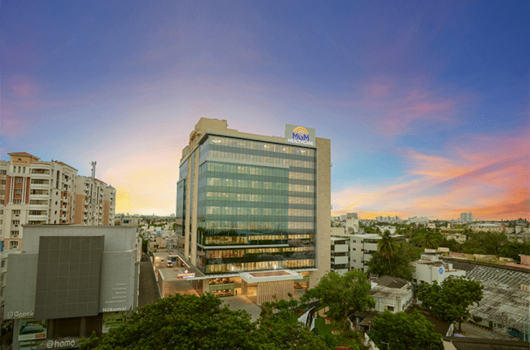




.png)

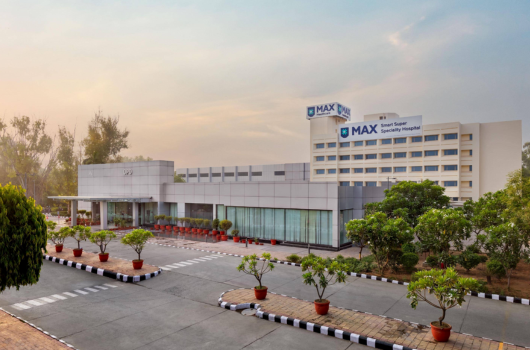
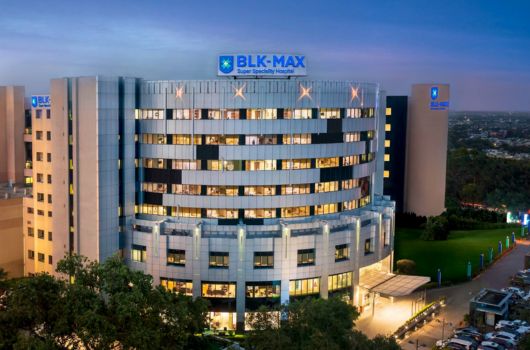
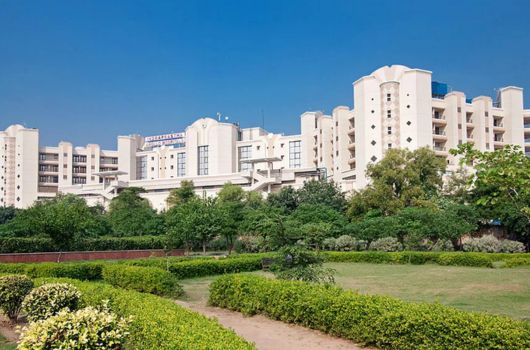


.jpg)

.jpg)

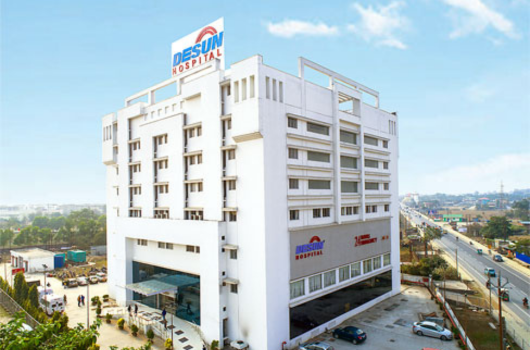
.png)
.png)

.jpg)
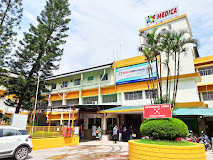
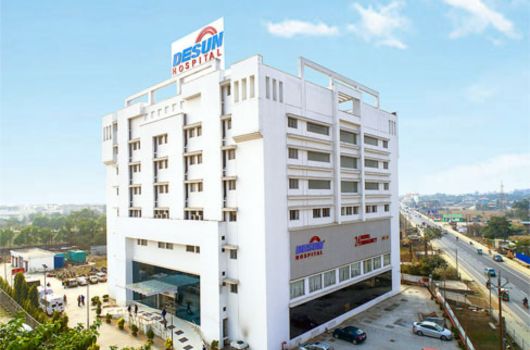


These hospitals follow international dermatology standards and provide full support for Bangladeshi patients through Bangla Health Connect.
The average cost of psoriasis treatment ranges from $240 to $1,200 in India and between $400 and $1,800 in Thailand. The final cost may vary depending on the treatment method, hospital location, and severity of the condition. Before viewing the detailed table of treatment-wise costs, it’s helpful to understand what influences these expenses most.
Note: India is known for offering affordable dermatology and psoriasis care. Hospitals provide a combination of advanced phototherapy, biologic treatments, and expert skin specialists at comparatively lower costs.
Note: Thailand’s hospitals are often preferred for their comfort, advanced facilities, and international dermatology care standards. The higher costs reflect premium service quality, imported medicines, and personalised skincare packages.
The costs listed are approximate and may differ based on hospital, city, and treatment duration. Consult your healthcare provider for accurate and updated estimates.
The currency conversion rates in the table above are based on data from November 2025.
For more help on cost estimates and personalised guidance, contact Bangla Health Connect.
Success in psoriasis treatment means controlling symptoms, reducing flare-ups, and helping patients live more comfortably. Many people achieve long-term relief and better skin health with timely diagnosis, proper treatment, and consistent follow-up.
With early care and modern treatment methods such as biologic therapy, targeted oral medicines, and light therapy, most patients see major improvement within weeks or months.
Leading hospitals focus on accurate diagnosis, effective treatment combinations, and patient comfort. Their approach includes:
This combined approach improves recovery, reduces flare-ups, and supports long-term disease control.

According to Dr. Ravichandran G from Apollo Hospitals, Greams Road, Chennai, psoriasis is not just a superficial skin issue but a lifestyle-related inflammatory disease with deeper health implications.
He explains that psoriasis can be genetic and is often triggered by cold weather, infections, or emotional stress. It is also linked to diabetes, obesity, high cholesterol, and heart disease.
Dr. Ravichandran highlights the importance of early diagnosis, especially for those with joint symptoms. If untreated, psoriasis can progress to psoriatic arthritis, leading to permanent joint damage. Early medical care helps prevent complications and improves quality of life.
Bangla Health Connect helps Bangladeshi patients access safe, expert, and timely psoriasis treatment at trusted hospitals worldwide. The team ensures a smooth and supportive experience from consultation to follow-up care.
Bangla Health Connect ensures that Bangladeshi patients receive world-class psoriasis care with clarity, comfort, and complete guidance at every stage.
Note: Bangla Health Connect does not provide medical advice of any kind.
✅ Share Your Reports - Bangla Health Connect connects you with trusted hospitals worldwide.
✅ Get treatment plans from leading Hospitals worldwide
✅ Choose the one that fits you
✅ Let us handle the rest
People with a family history of psoriasis are more likely to develop it. It can occur at any age, often between 15 and 35 years. Those with autoimmune conditions, obesity, frequent infections, or high stress levels are also at higher risk. Risk factors may vary for each individual. Consult a qualified dermatologist for personalised assessment.
Psoriasis cannot be completely cured, but it can be effectively controlled. With proper treatment, many patients live comfortably with clear or almost-clear skin and fewer flare-ups. Only a qualified dermatologist can recommend the most effective treatment to manage symptoms and reduce flare-ups.
Common triggers include stress, infections, cold weather, skin injuries, and certain medicines. Managing these triggers helps reduce flare-ups and maintain long-term control. Consult your dermatologist for personalised advice on identifying and managing factors that cause flare-ups.
Yes. Some patients develop psoriatic arthritis, which affects the joints. Early diagnosis and treatment can prevent permanent damage and improve mobility. Early consultation with a doctor is essential to prevent complications.
No. Psoriasis is not contagious and cannot spread through touch, food, or physical contact. It should not replace professional medical advice for diagnosis or management.
Yes. Bangladeshi patients travelling for treatment need a medical visa. Bangla Health Connect helps patients get the required hospital invitation letters and guides them through the full visa process.
Yes. You can travel with one or two family members under a medical attendant visa, depending on your destination’s policy.
The stay depends on the type of treatment. For light therapy or biologics, patients may stay for 2 to 6 weeks. For evaluation and follow-up, shorter visits may be enough.
Yes. Bangla Health Connect supports patients through every step, from doctor appointments and cost estimates to travel, stay, and post-treatment follow-up.

